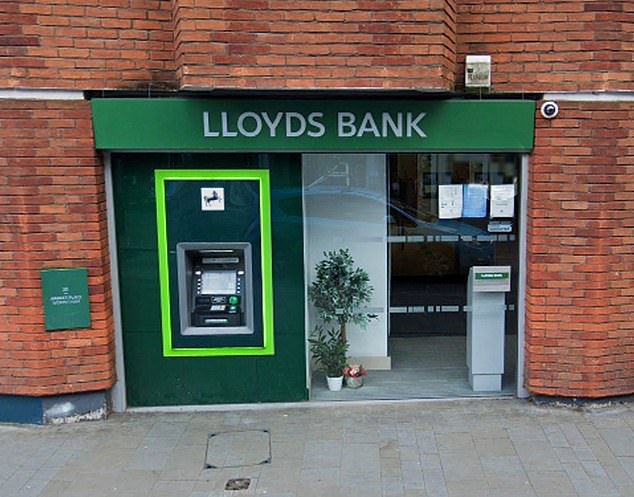JEFF PRESTRIDGE: Embrace the power of dividends as you build your portfolio
Investment house Seven Investment Management is a success story. Over the past 22 years, it has built a business that manages £20 billion of assets on behalf of individuals, families and charities.
The company, which labels itself 7IM, knows a thing or two about investing. Each week, one of the experts gives a pithy assessment on a particular aspect – from the benefits of portfolio diversification to surviving bear markets. I devour them like mini Easter eggs.
My attention was drawn to the recent missive on dividends, which reminded me of the appeal dividends have in convincing investors to put money into certain companies.
It said: ‘Dividends are a strong incentive for shareholders to invest in a company. When a company offers a dividend, it is making a statement: “Business is good, and while we have reinvested some of our earnings in the company, we are also rewarding our shareholders by returning some of their investments.” ‘
These words came back to mind a few days ago when investment fund Alliance announced its final quarterly dividend for 2023, a payment of 6.34p per share. It meant the £3.4bn listed fund paid out a total dividend of 25.2p to shareholders last year, an increase of five per cent on the previous year.
Looking Up: The lure of dividends can convince investors to put money into certain companies
Even more impressive, the trust’s record of annual dividend growth was extended to 57 years. Only trusts City of London and Bankers, both managed by Janus Henderson, have consistently grown their dividends for such a long period.
While “booming” isn’t a word I would necessarily use to describe Alliance, there’s no doubt that this 135-year-old trust fund fulfills a lot of wishes for investors.
Its assets are invested globally, annual operating costs are low (0.62 percent) and, unusually for an investment trust, it uses a team of fund managers to generate returns for shareholders.
Pulling the strings is investment house Willis Towers Watson (WTW), which hands out the trust’s assets to some of the world’s leading managers. They are currently owned by ten fund groups (such as Dalton, GQG, Jupiter and Vulcan) who all add something different in terms of investment expertise. Each manages a portfolio of no more than 20 stocks, with the exception of GQG, which also manages a basket of emerging market assets. WTW supervises the managers and occasionally replaces some managers if they don’t deliver the goods – or if better ones are found.
The result is a 200-person portfolio with nearly 60 percent of the trust’s assets in the United States. More importantly, the process works. Over the past three and five years, it has achieved total returns of 39 and 73 percent respectively. Only one trust within the global peer group – Brunner – has a better track record.
Last year’s dividend of 25.2p compares with a current share price of £11.72. Although annual income is modest in percentage terms – just over 2 percent – it is in a growth mode.
Seven Investment Management says investors should be aware that companies sometimes don’t get their dividend policy right: they pay shareholders too much when they should be investing more in their business.
Yet this cautionary advice does not apply to Alliance. It is a sensibly managed company, with sufficient income – more than a year’s worth – that has been kept in reserve if business turns out to be bad.
It’s the kind of investment that should be at the heart of a balanced Isa or DIY pension portfolio.
Evil. The only word for an enemy that tried to target my late mother

Fond memories: Jeff with his mother
I would really like to find the enemy who recently cloned my mother’s personal details in order to set up a current account with Santander in her name – and then presumably spend money at short notice.
I won’t tell you what I would want to do with them if I found out who they were. But perhaps a play in HMP Wakefield would allow them to see the error of their ways.
Although their application thankfully caught the attention of the bank’s fraud team and was rejected (thanks, Santander), this financial criminal’s actions will remain in my memory for some time to come. Not only did they vilely target a vulnerable 88-year-old, but Mom (or Helen of Troy, as I call her) died late last month after a long battle with cancer. Her funeral will take place this week.
My mother had already died when Santander wrote to her about the attempted fraud, so she was spared the suffering that the letter would inevitably have caused. But it raised my blood pressure into dangerous territory.
Financial crime may not be violent, but it is still evil and needs to be tackled at a high level.
My booming hometown… but the banks are still closed
My hometown of Wokingham in Berkshire remains in relatively good shape, despite the ongoing cost of living crisis. It is in a growth mode as new developments are popping up everywhere.
Even care home specialist McCarthy Stone seems to like it, judging by the fact that it has just built its second complex in the city (Oakingham Place) – a five-minute walk from the long-standing Queen’s Gate (no, I don’t) . I’m only keeping an eye on one).
Yet the banks, like many other towns across the country, appear uninterested in supporting Wokingham with branches that residents and small businesses can use to do their banking.

Disinterest: The Lloyds branch in Wokingham appears to be the last to close in the city
Since I showed up in town at the start of 2020, Barclays, Santander and NatWest have all closed their branches. This leaves building society Nationwide (obviously), while HSBC and Lloyds cling on – while the Post Office provides banking services at the back of a rather tired-looking WH Smith. But it now looks like Lloyds will be next. The council has just approved a new development for the land occupied by Lloyds and retail neighbor Robert Dyas. It includes 60 apartments, three new shops and a public square.
The proposals have already attracted criticism because the project does not include social housing. One councilor says Wokingham is turning into ‘a city for the rich only’ – an understandable view given that prices for a two-bedroom apartment start from £300,000.
Perhaps Lloyds will occupy one of the new development’s three stores – if so, I’ll eat the brown hat I loved but my late mother despised.
The most likely outcome is that the bank will leave town. As local Steve Ross – a 68-year-old retired electronics engineer – told me, if things continue like this, it won’t be long before Wokingham is considered for a banking center (a shared bank branch).
One final note about bank branches. Seven days ago I was in Staines-upon-Thames, Surrey, after taking part in a rather muddy running event. As the city center has seen better days, I was quite surprised to see three banks on the high street, occupying successive buildings: Lloyds, Barclays and NatWest. Illogical in a world where banks put branches on the shelf? Yes, although I’m not knocking it.
- Does your city have a similarly impressive number of banks? Email jeff.prestridge@mailonsunday.co.uk.
Some links in this article may be affiliate links. If you click on it, we may earn a small commission. That helps us fund This Is Money and keep it free to use. We do not write articles to promote products. We do not allow a commercial relationship to compromise our editorial independence.
